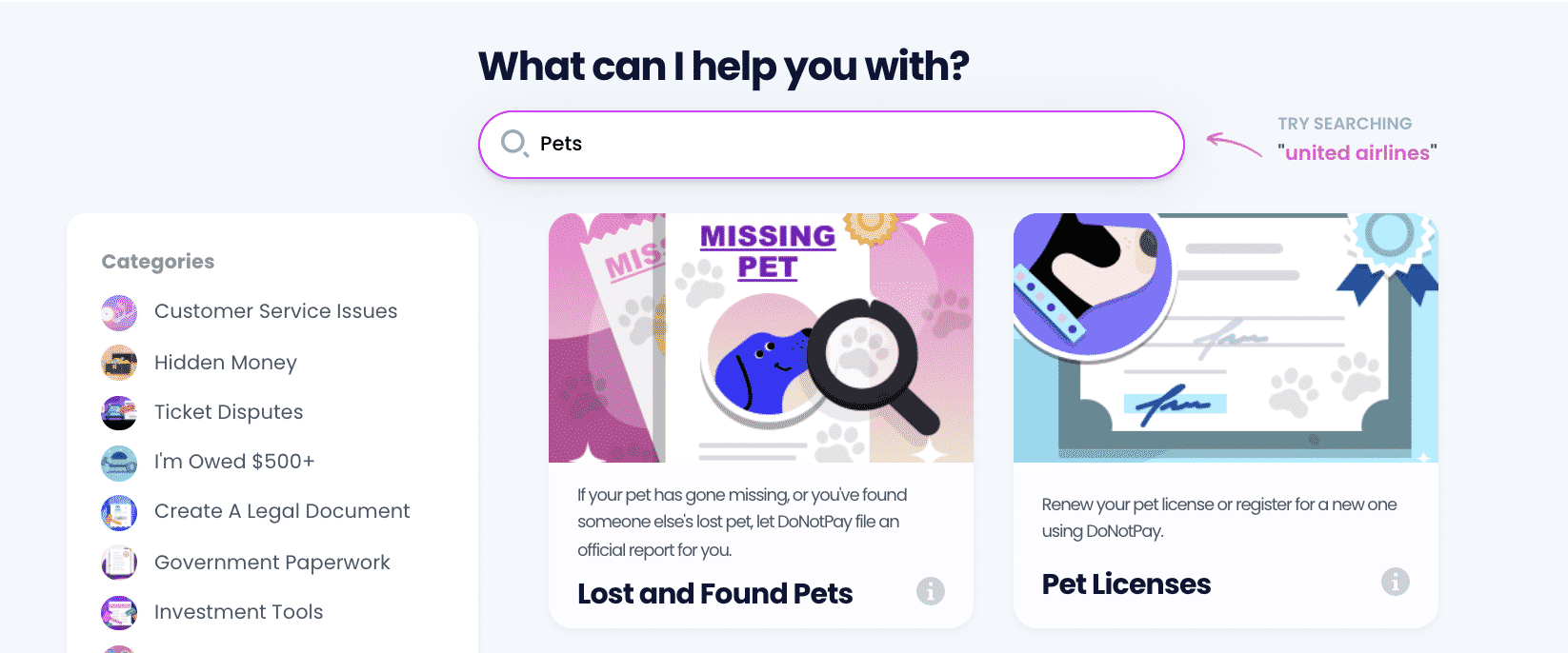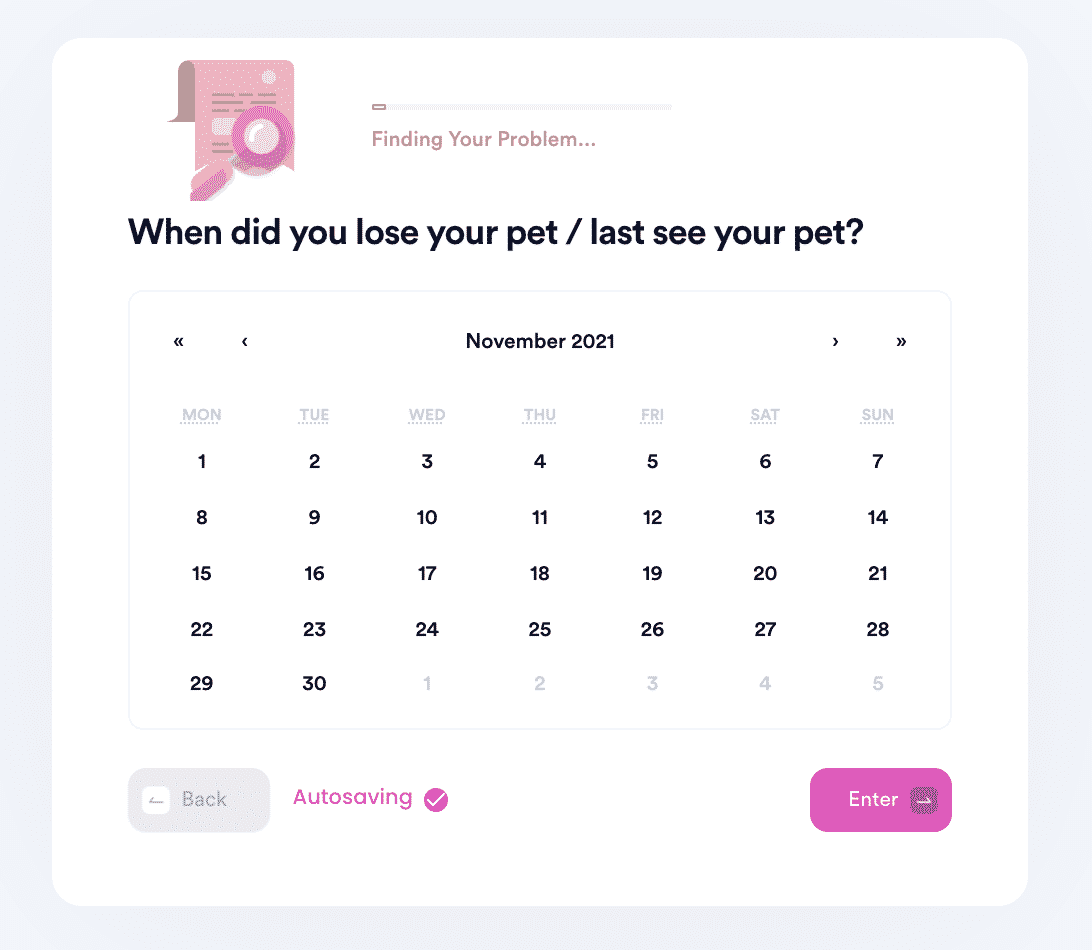Things You Should Do If Your Dog Has Been Missing For A Week
According to experts, one-third of all and cats in the US are reported missing in their lifetimes. And more than 80% are never found.
Sadly, this results in an estimated 9.4 million animals being euthanized each year. If your , your chances of finding him are reduced significantly. But that doesn't mean you should give up hope. In fact, it's important to stay hopeful and active, to improve your search. There are things you can do to increase the chances your missing dog is returned home.
Evaluate Your Search Efforts
You've probably done everything in your power thus far, to find your missing dog. If you notified the animal shelters and animal control officials in your area already, you should follow up with them.
Make sure to keep their contact information, as well as the dates you contacted them and the name of the person you spoke to.
Since thousands of housepets go missing each day, many times shelters might not have the manpower to catch every lost dog. That's why it's important for you to follow up every couple of days.
You’ve probably searched the area where your dog was last seen. Next, consider branching out farther. You - as the dog owner - know your pooch the best.
- Where are some places they might avoid?
- What are some things they might be attracted to?
Consider searching for your dog during the early evening when it's quieter. They might be able to hear you better without the daytime traffic and noises.
Place More Flyers
You've probably already put flyers out in the area. Consider revisiting these sites to make sure the flyers are still there. Weather and vandals are just a couple of ways your flyers could become damaged or missing. Next, think of other areas where you might be able to put out flyers.
Consider Lost Dog Behaviors
The pet FBI reports that dogs can behave differently when lost. Based on the type of dog you have, you can use these tips to understand where your lost dog goes at night.
- If your dog is small, elderly, or disabled, it may be found close to the area they were lost. Search within a two-mile radius.
- If your dog is a friendly and/or purebred dog, they are more likely to be rescued than others. But not all "rescuers" have good intentions. If your dog is worth a lot of money, someone might pick the dog up to keep them for themselves. It's important to put a lot of flyers and posters all around the area, to ensure they are recognized by strangers.
- If your dog is an aggressive or frightened dog, they will be more likely to seek out an escape from interaction in general. Try posting flyers and posters as far as 10 miles from their point of escape. Include a warning that the dog is dangerous and/or fearful, to alert anyone in case they run across your dog.
Use the Internet
You've probably already posted information about your lost pet on your social media. Boost those posts as much as you can - you can even pay for ads - to target users in the area.
Have you shared your dog's picture and information on all possible channels? Here are the main ones you can focus on:
If you don't have a social media account for these platforms, create one. Then, you can share your lost dog's information. Ask your followers to please share your post. This will give it more visibility.
What Happens to Lost Dogs?
There are three possible outcomes for dogs who are lost for a week or more.
| They're Found And Reunited With Their Owners | Many dogs are reunited with their owners, especially those who have started their search early and followed up with tips to find them safely. |
| They're Turned Into Animal Shelters | Animal control captures lost or homeless pets and take them to shelters to care for them and put them up for adoption. That's why it's crucial to notify your local animal shelters with information about your dog, including a recent photo. This way, if your dog is brought to the local shelter, they will know who the owner is. |
| They're Euthanized | Sadly, not all dogs who go into shelters will leave. These are aggressive, injured, or ill dogs whose owners are unknown. |
| They Become Strays | If your dog is not found within the first week, they might avoid capture altogether, and become a stray dog. In such cases - depending on the dog's personality - they might find a new home. Conversely, they may be found by animal control and taken to the nearest shelter. If your dog tends to roam, you should consider notifying shelters outside of your area, just in case they show up in a different district. |
Don’t Give up Hope
Did you know, according to the Guiness Book of World Records, the longest distance a dog has gone to find its owner was 2,000 miles? Dogs have great homing instincts and are more than just pets - they are a part of our family.
How Can DoNotPay Help Me Find My Dog?
Using DoNotPay to find your dog is a simple process.
DoNotPay can help you in the search for your missing dog, no matter where you're located.
- Search "lost and found pets" on DoNotPay, and select whether you're reporting a lost pet or a pet you've found.

- Enter the date and location you lost or found the pet and tell us more about them, including the breed, gender, whether they are wearing a collar, approximate size, and more.

- Upload evidence a photo of the pet, so they can be identified, and enter your current contact information where you can be reached with updates.

And that's it! DoNotPay will file the report on your behalf, and make sure your lost or found pet gets recorded in the government directory, and they know who to contact if they find a match!
But that’s not all you can do with the app.
Use it to:
- Learn how to find a lost cat
- Find a lost pet
- Find a runaway cat
But that’s not all. with DoNotPay today, and find out other ways to use the AI Consumer Champion!


